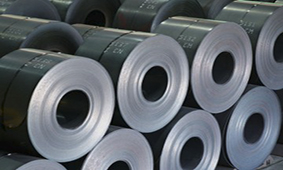
Shanghai rebar’s premium to HRC rises to 2019 high

The premium rose to 230 yuan/t ($33/t) today, the highest since 4 December 2018, with Shanghai rebar at Yn3,770/t ex-warehouse and hot-rolled coil (HRC) at Yn3,540/t. The prices include a 13pc value-added tax.
Rebar was priced at a discount of as much as Yn70/t to HRC during the late summer lull in construction demand. The autumn peak season for construction flipped long steel prices back to a premium, while a year-long slide in automakers' flat steel demand has weighed on HRC.
Rebar prices have also been supported by government data showing an 8.7pc increase in January-September total construction area to 8.342bn m³. Construction drives some flat steel demand.
China's sluggish car industry has been the main downward factor for HRC prices. January-October car production fell by 10.4pc to 20.444mn units, while sales fell by 9.7pc to 20.652mn units, China's association of automobile manufacturers CAAM said.
HRC prices rose in the middle of this year, supported partly by gross margins at steelmakers. HRC production costs are typically Yn100/t higher than rebar. The peak in feedstock costs mid-year acted more as a floor to HRC prices when some mills were operating at negative margins.
Mills' gross profits have widened to Yn400-500/t for rebar and Yn100-200/t for HRC, according to an Argus survey.
Supply trends show mills have directed output to meet higher demand for long products.
January-September rebar production rose by 19.3pc to 185.316mn t, according to China's national bureau of statistics. Production of HRC and hot-rolled strip rose by 10.9pc to 114.183mn t over the same period.
The rebar premium this year is only a third of the highs reached in 2018. Rebar-to-HRC premiums surged above Yn600/t in early November 2018, but this was a short-lived phenomenon caused by rapid declines in steel prices.
Beijing surprised markets by loosening output restrictions for the 2018-19 winter. The extra supply sent steel prices tumbling, with HRC initially falling faster than rebar.



Trump weighs using $2 billion in CHIPS Act funding for critical minerals

Codelco cuts 2025 copper forecast after El Teniente mine collapse

Electra converts debt, launches $30M raise to jumpstart stalled cobalt refinery

Barrick’s Reko Diq in line for $410M ADB backing

Abcourt readies Sleeping Giant mill to pour first gold since 2014

Nevada army depot to serve as base for first US strategic minerals stockpile

SQM boosts lithium supply plans as prices flick higher

Viridis unveils 200Mt initial reserve for Brazil rare earth project

Tailings could meet much of US critical mineral demand – study

Kyrgyzstan kicks off underground gold mining at Kumtor

Kyrgyzstan kicks off underground gold mining at Kumtor

KoBold Metals granted lithium exploration rights in Congo

Freeport Indonesia to wrap up Gresik plant repairs by early September

Energy Fuels soars on Vulcan Elements partnership

Northern Dynasty sticks to proposal in battle to lift Pebble mine veto

Giustra-backed mining firm teams up with informal miners in Colombia

Critical Metals signs agreement to supply rare earth to US government-funded facility

China extends rare earth controls to imported material

Galan Lithium proceeds with $13M financing for Argentina project

Kyrgyzstan kicks off underground gold mining at Kumtor

Freeport Indonesia to wrap up Gresik plant repairs by early September

Energy Fuels soars on Vulcan Elements partnership

Northern Dynasty sticks to proposal in battle to lift Pebble mine veto

Giustra-backed mining firm teams up with informal miners in Colombia

Critical Metals signs agreement to supply rare earth to US government-funded facility

China extends rare earth controls to imported material

Galan Lithium proceeds with $13M financing for Argentina project

Silver price touches $39 as market weighs rate cut outlook

















